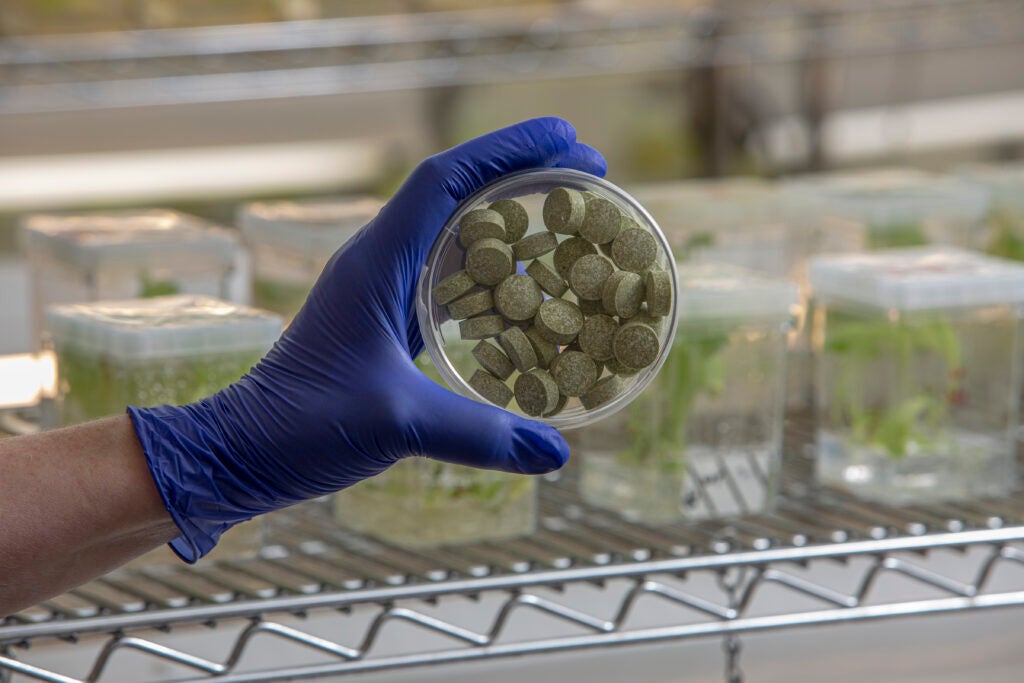A chewing gum impregnated with a plant-grown protein may serve as a “trap” for the SARS-CoV-2 virus, theoretically reducing viral load in the chewer’s saliva and potentially tamping down transmission, according to work led by Henry Daniell, PhD, Professor of Biochemistry at Penn’s School of Dental Medicine and performed in collaboration with scientists at Penn Medicine, Penn Vet, The Wistar Institute and Fraunhofer USA. “SARS-CoV-2 replicates in the salivary glands, and we know that when someone who is infected sneezes, coughs, or speaks some of that virus can be expelled and reach others,” says Daniell. “This gum offers an opportunity to neutralize the virus in the saliva, giving us a simple way to possibly cut down on a source of disease transmission.” The discovery could lead to a low-cost preventative weapon in the arsenal against the COVID-19 pandemic, and PCI is now working with Dr. Daniell and the Penn School of Dental Medicine to spin the technology into a startup company.
